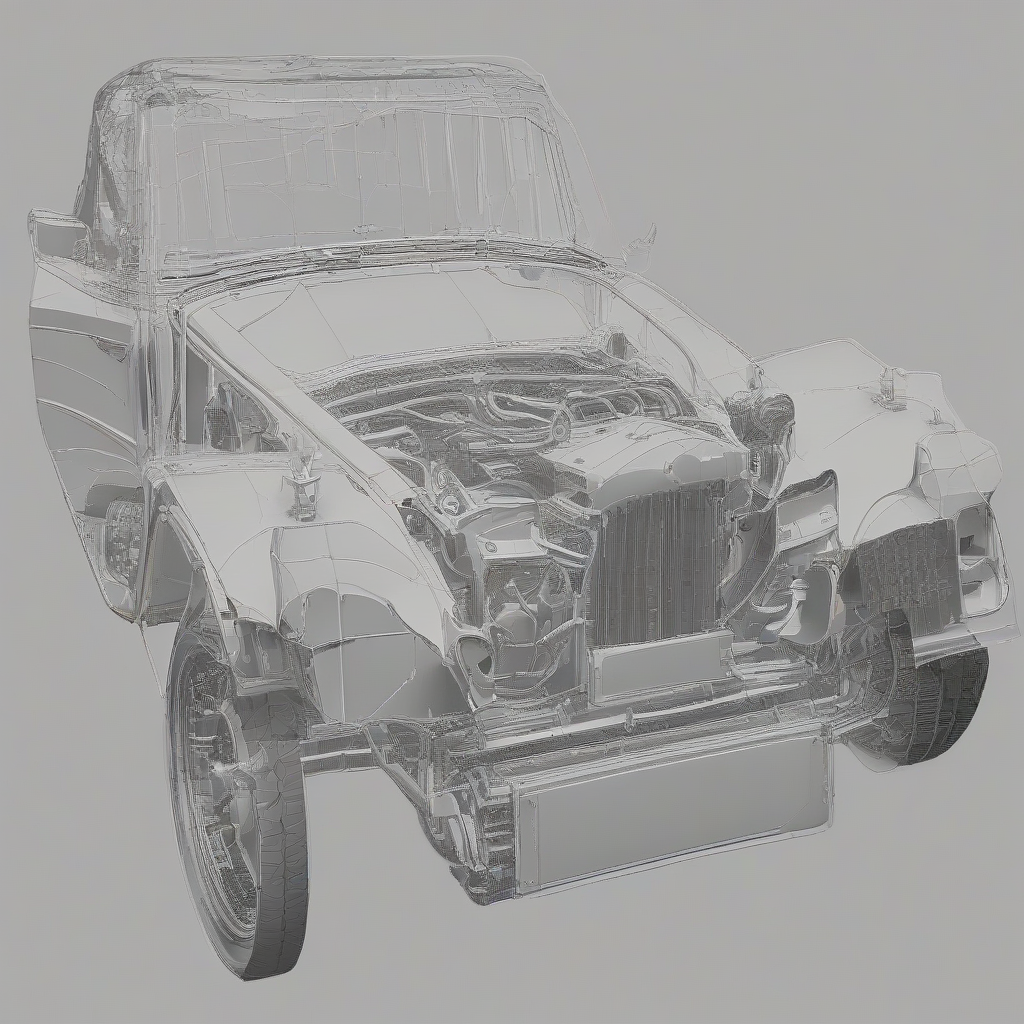Rev Up Your Future: A Deep Dive into Automotive Engineering
Automotive engineering, a dynamic and ever-evolving field, blends mechanical, electrical, software, and safety engineering principles to design, manufacture, and maintain vehicles. This comprehensive guide explores the multifaceted aspects of automotive engineering, providing insights into its core disciplines, career paths, educational requirements, and the future of the industry.
Core Disciplines within Automotive Engineering
- Vehicle Dynamics and Control: This area focuses on understanding how a vehicle behaves on the road, encompassing handling, stability, braking, and steering. Engineers in this discipline develop advanced driver-assistance systems (ADAS) and strive for optimal vehicle performance and safety.
- Powertrain Engineering: A crucial aspect of automotive engineering, powertrain engineering deals with the design, development, and integration of the engine, transmission, and drivetrain. This includes internal combustion engines (ICE), electric motors, hybrid systems, and fuel systems.
- Chassis and Body Engineering: This discipline focuses on the structural integrity and design of the vehicle’s chassis and body. Engineers ensure safety, durability, and lightweight construction while optimizing aerodynamics and passenger comfort.
- Electronics and Software Engineering: Modern vehicles are increasingly reliant on sophisticated electronic control units (ECUs) and embedded software. This area encompasses the design, development, and testing of these systems, including engine management, transmission control, and ADAS features.
- Manufacturing and Production Engineering: This branch of automotive engineering focuses on optimizing the manufacturing process to ensure efficient and cost-effective production of vehicles. This includes supply chain management, assembly line optimization, and quality control.
- Automotive Safety Engineering: Safety is paramount in automotive engineering. This discipline encompasses designing and testing safety features such as airbags, seatbelts, crumple zones, and advanced driver-assistance systems (ADAS) to minimize the risk of injury in accidents.
Career Paths in Automotive Engineering
A degree in automotive engineering opens doors to a wide range of exciting career opportunities:
- Automotive Design Engineer: Responsible for the aesthetic and functional design of vehicles, from initial sketches to final production.
- Powertrain Engineer: Designs and develops engine systems, transmissions, and drivetrains, focusing on efficiency, performance, and emissions.
- Chassis Engineer: Focuses on the design and development of the vehicle’s chassis, suspension, and steering systems.
- Vehicle Dynamics Engineer: Specializes in the handling, stability, and braking performance of vehicles.
- Embedded Systems Engineer: Develops and integrates the software and electronic control units (ECUs) that control various vehicle functions.
- Manufacturing Engineer: Optimizes the manufacturing process to ensure efficient and cost-effective production of vehicles.
- Automotive Safety Engineer: Designs and tests safety features to minimize the risk of injury in accidents.
- Research and Development Engineer: Works on the cutting edge of automotive technology, developing new materials, processes, and systems.
- Testing and Validation Engineer: Conducts rigorous testing and validation of vehicle components and systems to ensure quality and reliability.
- Project Manager: Oversees all aspects of vehicle development projects, from concept to production.
Educational Requirements for Automotive Engineering
Aspiring automotive engineers typically need a bachelor’s degree in automotive engineering, mechanical engineering, or a closely related field. Many universities offer specialized automotive engineering programs, providing in-depth knowledge and practical skills.
- Bachelor’s Degree: A four-year bachelor’s degree program typically includes coursework in mathematics, physics, mechanics, thermodynamics, materials science, electronics, and computer programming. Many programs also incorporate hands-on laboratory work and design projects.
- Master’s Degree: A master’s degree can provide advanced knowledge and specialization in a specific area of automotive engineering, such as vehicle dynamics, powertrain systems, or embedded systems. This is often beneficial for those aiming for research or leadership roles.
- Doctorate (PhD): A doctoral degree is typically pursued by those interested in academic research or highly specialized roles in the industry.
- Internships and Co-ops: Practical experience through internships and co-op programs are highly valuable and can significantly enhance career prospects.
Essential Skills for Automotive Engineers
Beyond formal education, successful automotive engineers possess a blend of technical and soft skills:
- Strong analytical and problem-solving skills: Automotive engineering often involves tackling complex challenges requiring creative solutions.
- Proficiency in engineering software and tools: Familiarity with computer-aided design (CAD) software, simulation tools, and data analysis software is crucial.
- Knowledge of mechanical, electrical, and software systems: A broad understanding of various engineering disciplines is essential for holistic vehicle design.
- Teamwork and communication skills: Automotive engineering projects typically involve collaboration with engineers from various disciplines.
- Project management skills: The ability to manage projects effectively, meet deadlines, and work within budgets is vital.
- Continuous learning and adaptability: The automotive industry is rapidly evolving, requiring engineers to stay updated with the latest technologies and trends.
The Future of Automotive Engineering
The automotive industry is undergoing a period of rapid transformation, driven by factors such as electrification, automation, and connectivity. This presents both challenges and opportunities for automotive engineers.
- Electrification: The shift towards electric vehicles (EVs) and hybrid electric vehicles (HEVs) is creating a significant demand for engineers specializing in battery technology, electric motors, and power electronics.
- Autonomous Driving: The development of self-driving cars requires expertise in artificial intelligence (AI), sensor technologies, and advanced control algorithms.
- Connectivity: Connected cars are becoming increasingly prevalent, requiring engineers with expertise in telematics, data communication, and cybersecurity.
- Sustainability: Environmental concerns are driving the development of sustainable automotive technologies, such as lightweight materials, fuel-efficient engines, and recycled components.
- Advanced Materials: The use of advanced materials, such as carbon fiber and composites, is increasing to improve vehicle performance and reduce weight.
In conclusion, automotive engineering offers a rewarding and challenging career path for individuals with a passion for innovation and problem-solving. With its ever-evolving landscape, the future of this field is bright, promising exciting opportunities for those who are prepared to embrace the challenges and advancements of the automotive industry.

